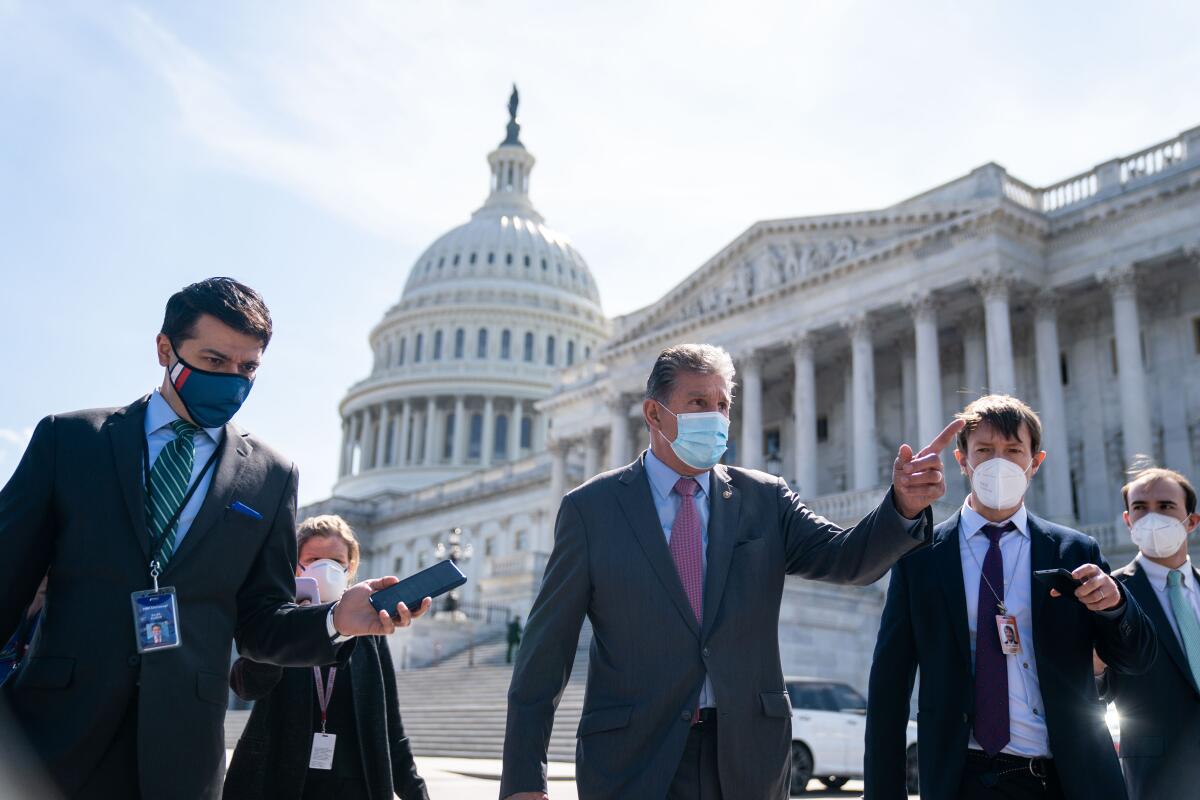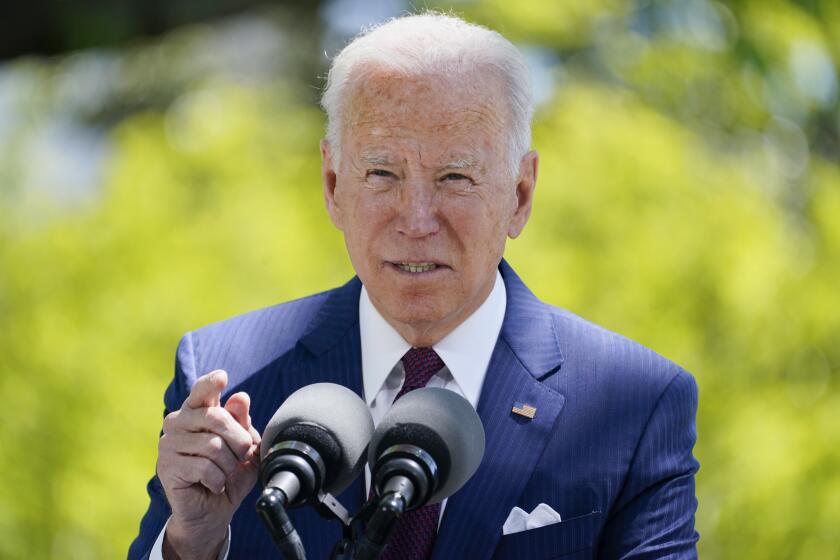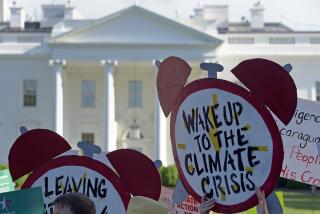Editorial: Climate change is ravaging the planet. Don’t let Joe Manchin slow the U.S. response

- Share via
This is not a hopeful moment for the fight against climate change.
Over the summer, when the world was beset by record-breaking heat waves, flooding and wildfires, and humankind could see firsthand the terrible toll of a warming planet, it seemed like there might finally be the political will, particularly in the U.S., to wean economies and communities off fossil fuels and slash carbon emissions.
President Biden made climate change a centerpiece of his agenda, and the latest version of his “Build Back Better” bill includes $555 billion to help cut greenhouse gas emissions and speed up the transition to electric vehicles and renewable energy. If approved by Congress, it would be the biggest investment in climate spending in U.S. history and a major commitment from the world’s largest economy.
Well, Sen. Joe Manchin III dashed that hope over the weekend.
The situation is dire, but there’s hope: We can still prevent the worst devastation by slashing carbon emissions over the next decade.
The West Virginia Democrat, whose vote is essential in the evenly divided Senate, announced on “Fox News Sunday” that he would not vote for the Build Back Better bill as currently drafted. As a result of Manchin’s opposition, the bill could be shrunk even more to appease him (it started out at $3.5 trillion) or scrapped altogether, in which case Congress will have failed, again, to take action to slow the existential threat of climate change.
Build Back Better is more than a climate bill. The $1.75-trillion plan includes money for universal preschool, an extended child tax credit, affordable housing and subsidies to help families pay for child care, healthcare and elder care. These are much-needed investments designed to address the prosperity gap and adapt the federal government to the needs of a 21st century.
But the potential demise of Biden’s clean energy and technology spending plan is particularly galling. Climate change is a ticking time bomb. The world has already moved too slowly to stop global warming and the resulting increase in extreme and deadly weather events, a dire United Nations report warned in the summer. But with radical action to cut carbon emissions over the next decade, we can still prevent the worst devastation.
Much has been made of the cost of the new president’s proposals and of his supposed push for “big government.” In fact, Biden has been playing catch-up, trying to adjust for years of federal detachment.
The U.S., as one of the nations responsible for the most emissions, bears a special responsibility to move quickly now to cut carbon. Biden’s plan is an attempt to do that by offering tax credits and incentives to encourage companies and consumers to invest in clean energy and vehicles. It’s worth noting that an important piece of the president’s climate agenda — a plan to reward companies that use clean energy sources and penalize those that don’t — was yanked from the bill in the fall to keep Manchin on board. So much for that.
Now, Manchin isn’t solely responsible for Congress’ failure to act. There are 50 Republican senators who have refused to support Biden’s bill, or offer any realistic alternative plan to fight climate change.
Manchin and GOP lawmakers parrot fossil-fuel industry talking points that the energy sector is already moving to renewable power and accelerating the transition would risk the reliability of the electric grid. But the U.S., along with other major world polluters, aren’t moving fast enough to phase out fossil fuels and cut carbon to limit global temperature rise. And the extreme weather patterns fueled by climate change, from severe heat waves to ice storms, are also a serious threat to the electric grid.
This cannot be the end of the U.S. ambition to fight climate change. The Democrats must continue to push for the Build Back Better bill. There’s too much at stake.
More to Read
A cure for the common opinion
Get thought-provoking perspectives with our weekly newsletter.
You may occasionally receive promotional content from the Los Angeles Times.












